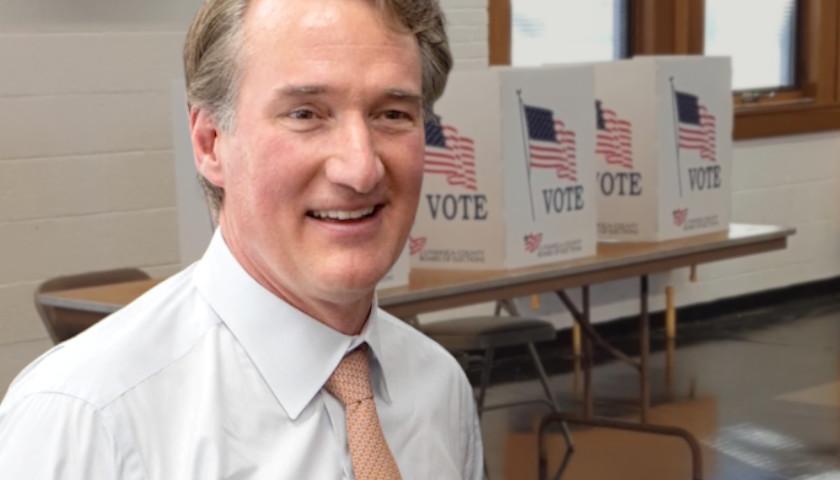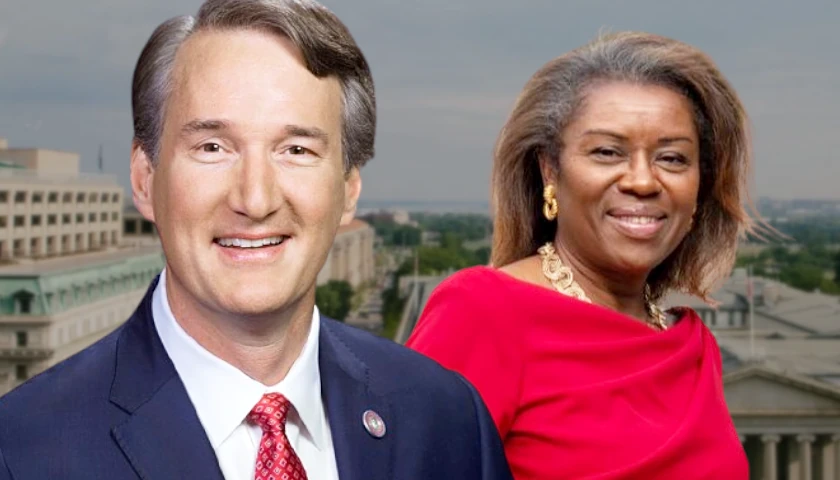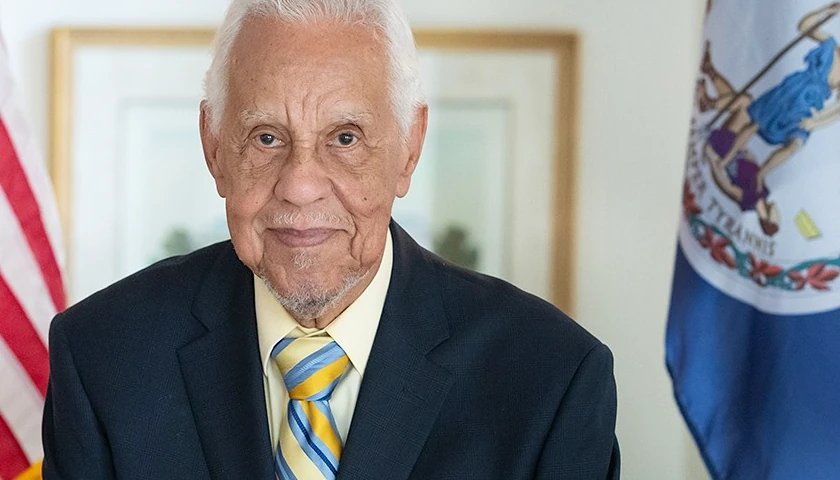by Madison Hirneisen
Virginia lawmakers and advocates are raising concern about new policy changes regarding the state’s restoration of rights process, and arguing Gov. Glenn Youngkin’s administration has lacked transparency by not disclosing the criteria by which a person convicted of a felony has their civil rights restored.
Youngkin’s administration has made changes to state policy pertaining to how someone convicted of a felony in Virginia has their rights restored. Specifically, Youngkin’s administration is moving away from policy followed by previous administrations of automatically reviewing and restoring the rights of some formerly incarcerated felons.
Under the new policy, Youngkin’s administration will require individuals convicted of felonies upon discharge to apply to have their rights restored, according to a letter from Secretary of the Commonwealth Kay Coles James sent to Sen. Lionell Spruill, D-Chesapeake, on Wednesday. James wrote that Virginians “trust the Governor and his Administration to consider each person individually and take into consideration the unique elements of each situation, practicing grace for those who need it and ensuring public safety for our community and families.”
Advocates and several Democratic lawmakers are raising concern about the policy change, arguing the governor’s administration has not disclosed what criteria they are using to weigh each applicant who applies to have their rights restored.
“The Youngkin administration’s failure to disclose the criteria by which it will review incarcerated people’s applications for the restoration of their voting rights is hugely concerning,” ACLU-VA Policy Director Ashna Khanna said in a statement to The Center Square. “Unlike previous administrations, which were transparent about both eligibility for restoration and the process they would use, the Youngkin administration appears content to leave Virginians in the dark.”
Under Virginia law, anyone convicted of a felony automatically loses their civil rights – the right to vote, serve on a jury, run for office, become a notary and carry a firearm. The Virginia Constitution specifies the governor has the sole discretion to restore civil rights – minus the right to carry a firearm.
Back in 2013, former Gov. Bob McDonnell, a Republican, began automatically restoring the rights of some individuals convicted of nonviolent felonies who completed their sentences and met certain conditions.
Then in 2016, Gov. Terry McAuliffe, a Democrat, signed an executive order to restore the civil rights of more than 200,000 convicted felons in Virginia. The Virginia Supreme Court ultimately ruled later that year McAuliffe did not have the authority to restore rights on a blanket basis, so McAuliffe began individually restoring rights to more than 173,000 people.
Youngkin’s predecessor, Democratic Gov. Ralph Northam, restored the rights of more than 69,000 former felons who completed their sentence but were still on probation. During Northam’s term, Democrats in the General Assembly proposed a constitutional amendment to make the restoration of rights automatic, but that measure failed to pass last session in the Republican-controlled House of Delegates.
Spruill, a Democratic senator who chairs the Privileges and Elections Committee, sent a letter to the secretary of the commonwealth last week, writing he was concerned the governor “has terminated the automatic restoration process and is restoring individuals’ rights using unknown criteria.” Spruill also pointed out data revealing that just 4,000 voters’ rights were restored in 2022 compared to 90,000 in 2021 and 17,000 in 2020.
In a statement to The Center Square, Spruill said it “deeply concerns me when the core rights I have been fighting for all my life are being rolled back.”
“Once you have served your time, your rights should be restored for non-violent felons. Period,” Spruill said. “As Chairman of the Privileges and Elections Committee, I will fight against this secret process and secret set of rules that the Governor is using to decide who can be denied the right to vote. Elections have consequences, and I will continue to fight back against the rollback of these rights.”
Macaulay Porter, Youngkin’s spokeswoman, did not elaborate on what criteria the administration is using in response to questions from The Center Square sent Thursday. In a statement, Porter said Youngkin “firmly believes in the importance of second chances for Virginians who have made mistakes but are working to move forward as active members of our citizenry.”
“Restoration of rights are assessed on an individual basis according to the law and take into consideration the unique elements of each situation, practicing grace for those who need it and ensuring public safety for our community and families,” Porter said. “The Department of Corrections and the Secretary of the Commonwealth work with the appropriate agencies to restore an individual’s rights.”
Advocates noted the online application individuals convicted of a felony fill out to have their rights restored has been changed. Specifically, the updated form now asks if the formerly incarcerated person has been convicted of a violent felony and whether or not they have paid their fines and fees.
“Those weren’t things that were on the previous form, so it suggests that there’s a change in policy that’s looking at fines and fees and that’s looking at the nature of the crime committed,” Rebecca Green, an associate professor of law at William & Mary, told The Center Square. “That would be a big change in policy.”
Shawn Weneta, a policy strategist with the ACLU of Virginia, called the Youngkin administration’s policy a “generational shift in transparency and access to the ballot,” estimating there are 10,000 to 15,000 people who have been “disenfranchised over the course of the last 15 months.”
“For the last several administrations – Republican and Democrat –the process has only become more accessible and more transparent,” Weneta said. “This is a regressive policy change and a very regressive posture by this administration, and it’s incredibly disappointing.”
In the letter sent to Spruill this week, James said the administration has scheduled a roundtable to discuss the rights restoration process with advocates next month. As of Thursday, Weneta said the ACLU of Virginia had not been invited to the stakeholder meeting.
– – –
Madison Hirneisen is a staff reporter covering Virginia and Maryland for The Center Square. Madison previously covered California for The Center Square out of Los Angeles, but recently relocated to the DC area. Her reporting has appeared in several community newspapers and The Washington Times.
Photo “Glenn Youngkin” by Glenn Youngkin. Background Photo “Voting Booth” by Tim Evanson. CC BY-SA 2.0.





